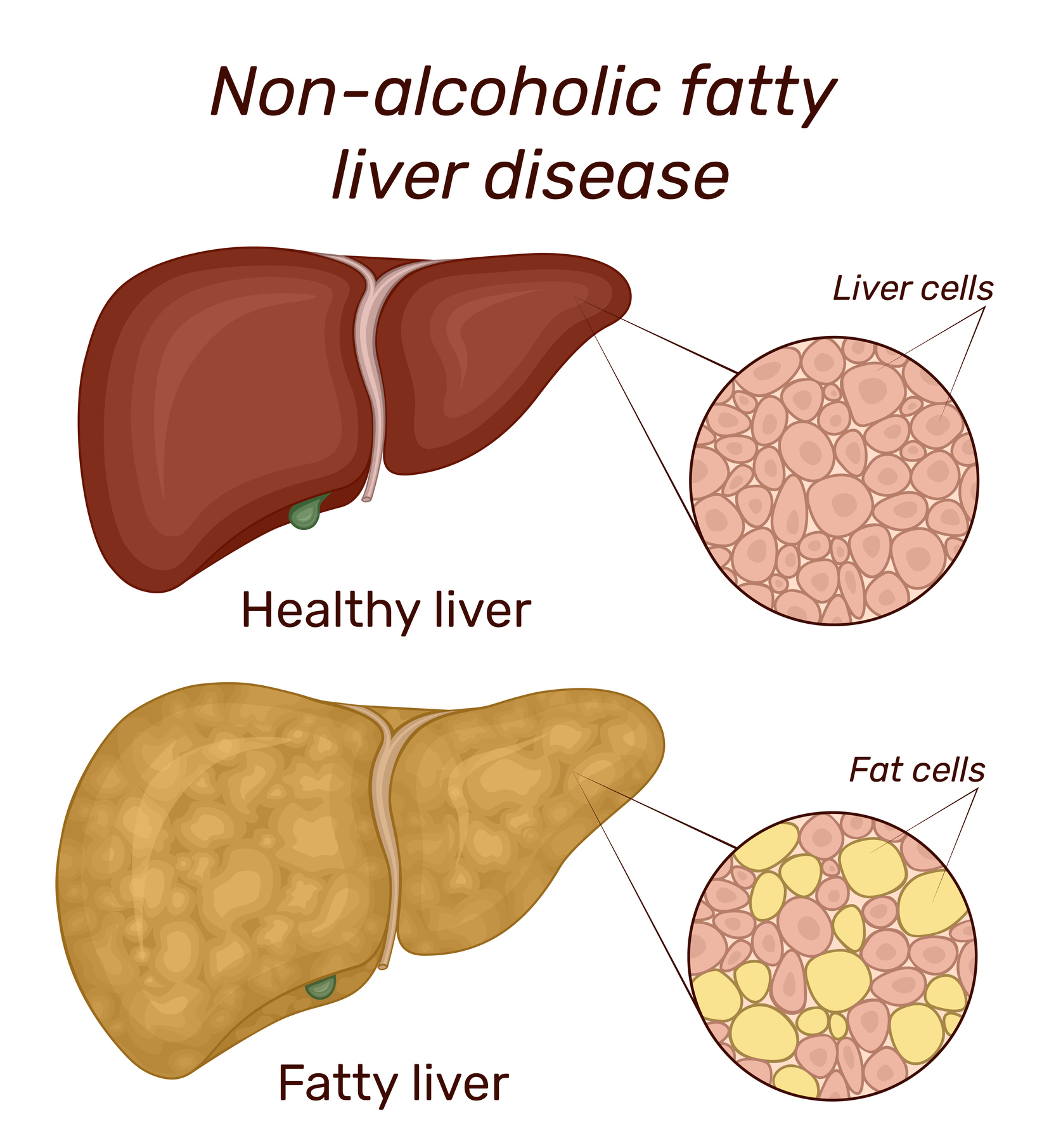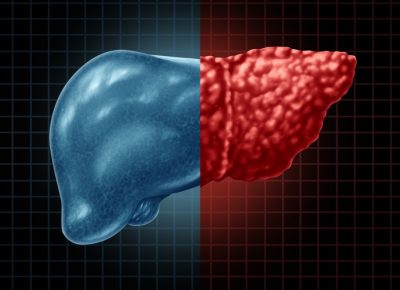Did you know that Non-Alcoholic Fatty Liver Disease affects anywhere from 80-100 million people who drink little to no alcohol in the US every year? Your liver plays an important role in breaking down fats in the body. Fat accumulates when this process malfunctions or when conditions such as diabetes mellitus, high blood triglycerides or heavy alcohol use are present. The accumulation can also be caused by tuberculosis and malnutrition, excess vitamin A or use of certain drugs, such as valproic acids or corticosteroids. Pregnancy can also cause fatty build up.
Although fat in the liver usually causes no damage by itself, it can be a sign of a more harmful condition. Fatty liver may be associated with or lead to inflammation of the liver, known as steatohepatitis, which can cause scarring and hardening of the liver. Extensive scarring is called cirrhosis, and is considered a very serious condition.
Risk Factors for Non-Alcoholic Fatty Liver Disease
- Overweight or obesity, especially abdominal fat
- Insulin resistance (inability to effectively use insulin)
- Metabolic syndrome, which includes the presence of any three of the following:
- High blood sugar, which may indicate pre-diabetes or type 2 diabetes
- High cholesterol (high levels of LDL, the bad cholesterol, or low levels of HDL, the good cholesterol)
- High levels of triglycerides (a type of fat) in the blood
- High blood pressure
- Large waist size
Most people do not know they have a fatty liver as there are usually no noticeable symptoms. In fact, fatty liver is frequently uncovered during a routine physical examination or while your physician is evaluating you for other illnesses.
Symptoms of Non-Alcoholic Fatty Liver Disease
It is usually asymptomatic. Symptoms are usually very vague and may include:
- Fatigue
- Pain the upper right abdomen
If it progresses to cirrhosis, the following symptoms may include:
- Enlarged breasts in men
- Red palms
- Internal bleeding
- Fluid retention
In order to diagnose fatty liver disease, one of our physicians may recommend a fibroscan or liver biopsy.
Gradual weight loss through a combination of a healthy diet and exercise is the only effective treatment for Non-Alcoholic Fatty Liver Disease. Weight loss can reduce fat in the liver, alleviate inflammation and help heal liver damage or scarring that has occurred.

Keep Your Liver in Good Health
Ocean Family Gastroenterology has an exceptionally qualified team of talented gastroenterologists who have a detailed understanding of the GI system. We work diligently to understand your symptoms and provide cutting-edge diagnostic technology in order to provide you with the most accurate diagnosis of your condition. Click here to view our Frequently Asked Questions, and when you’re ready to schedule a visit, call 732-281-1590 or request an appointment online.
Interested in more GI tips and medical news? Have a look at our blog, with plenty of useful information and advice about a variety of gastrointestinal symptoms, what they mean, and what you can do about them.
